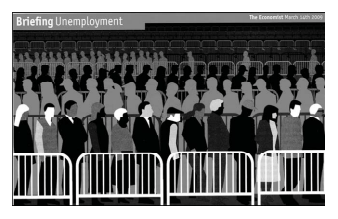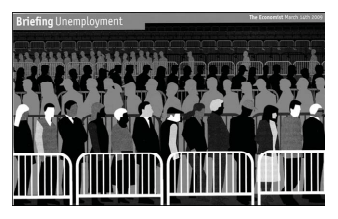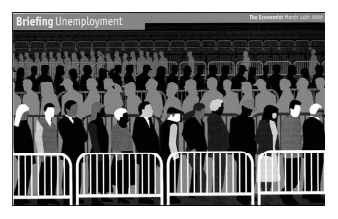USP 2010 Inglês - Questões
Abrir Opções Avançadas
Leia o seguinte texto e responda, em português, ao que se pede.
Yahoo! wants to reinvent the postage stamp to cut spam. Researchers are testing a scheme where users pay a cent to charity for each email they send - so clearing their inbox and conscience simultaneously.
Yahoo! Research’s CentMail resurrects an old idea: that levying a charge on every email sent would instantly make spamming uneconomic. But because the cent paid for an accredited “stamp" to appear on each email goes to charity, CentMail’s inventors think it will be more successful than previous approaches to make email cost. They think the cost to users is offset by the good feeling of giving to charity.
(http://www.newscientist.com/article/dn17577. Acessado em 14/08/2009. Adaptado.)
a) O texto apresenta uma proposta feita pela empresa Yahoo! para diminuir a quantidade de mensagens eletrônicas indesejadas ou spams. Qual é a proposta?
b) Por que os inventores do CentMail acreditam que sua proposta será mais bem sucedida que as anteriores?

Last month America’s unemployment rate climbed to 8,1%, the highest in a quarter of a century. For those newly out of a job, the chances of finding another soon are the worst since records began 50 years ago. In China 20m migrant workers (maybe 3% of the labour force) have been laid off. Cambodia’s textile industry, its main source of exports, has cut one worker in ten. In Spain the building bust has pushed the jobless rate up by two-thirds in a year, to 14.8% in January. And in Japan, where official unemployment used to be all but unknown, tens of thousands of people on temporary contracts are losing not just their jobs but also the housing provided by their employers.
The next phase of the world’s economic downturn is taking shape: a global jobs crisis. Its contours are only just becoming clear, but the severity, breadth and likely length of the recession, together with changes in the structure of labour markets in both rich and emerging economies, suggest the world is about to undergo its biggest increase in unemployment for decades.
(The economist, March 14th 2009.)
De acordo com o texto, publicado em março de 2009,

Last month America’s unemployment rate climbed to 8,1%, the highest in a quarter of a century. For those newly out of a job, the chances of finding another soon are the worst since records began 50 years ago. In China 20m migrant workers (maybe 3% of the labour force) have been laid off. Cambodia’s textile industry, its main source of exports, has cut one worker in ten. In Spain the building bust has pushed the jobless rate up by two-thirds in a year, to 14.8% in January. And in Japan, where official unemployment used to be all but unknown, tens of thousands of people on temporary contracts are losing not just their jobs but also the housing provided by their employers.
The next phase of the world’s economic downturn is taking shape: a global jobs crisis. Its contours are only just becoming clear, but the severity, breadth and likely length of the recession, together with changes in the structure of labour markets in both rich and emerging economies, suggest the world is about to undergo its biggest increase in unemployment for decades.
(The economist, March 14th 2009.)
Segundo o texto, no Japão,

Last month America’s unemployment rate climbed to 8,1%, the highest in a quarter of a century. For those newly out of a job, the chances of finding another soon are the worst since records began 50 years ago. In China 20m migrant workers (maybe 3% of the labour force) have been laid off. Cambodia’s textile industry, its main source of exports, has cut one worker in ten. In Spain the building bust has pushed the jobless rate up by two-thirds in a year, to 14.8% in January. And in Japan, where official unemployment used to be all but unknown, tens of thousands of people on temporary contracts are losing not just their jobs but also the housing provided by their employers.
The next phase of the world’s economic downturn is taking shape: a global jobs crisis. Its contours are only just becoming clear, but the severity, breadth and likely length of the recession, together with changes in the structure of labour markets in both rich and emerging economies, suggest the world is about to undergo its biggest increase in unemployment for decades.
(The economist, March 14th 2009.)
O pronome “another” (3) na sentença “...the chances of finding another...” refere-se a
As everybody knows, if you do not work out, your muscles get flaccid. What most people don’t realize, however, is that your brain also stays in better shape when you exercise.
Surprised? Although the idea of exercising cognitive machinery by performing mentally demanding activities - popularly termed the “use it or lose it” hypothesis - is better known, a review of dozens of studies shows that maintaining a mental edge requires more than that. Other things you do - including participating in activities that make you think, getting regular exercise, staying socially engaged and even having a positive attitude - have a meaningful influence on how effective your cognitive functioning will be in old age.
(www.scientificamerican.com/article. Acessado em 06/07/2009. Adaptado.)
O texto informa que
Carregando...